
Frizzle Sizzle Succulents, Plants, Air plants
Frizzle Sizzle Plant (Albuca Spiralis) Caring Tips: When it comes to the most famous Caring for a Frizzle Sizzle Plant can be a rewarding experience, and knowing the basics of Frizzle Sizzle Plant care is essential for keeping your plant healthy and happy. Watering: Frizzle Sizzle Plants require less watering once every 2 or 3 weeks, make sure.
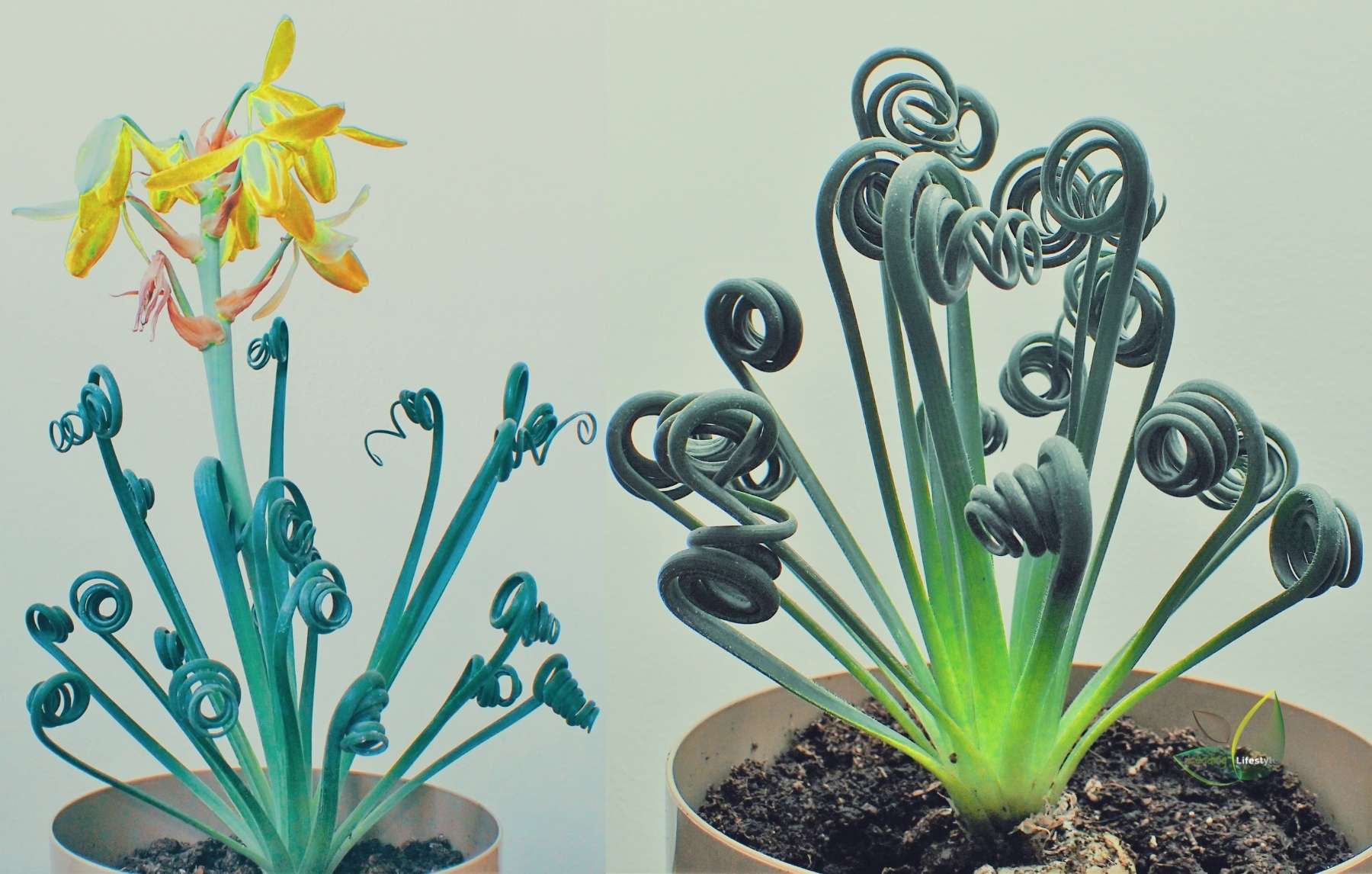
How to Grow and Care For Albuca Spiralis Frizzle Sizzle Plant
3. Protect the caudex root structure with good drainage. It is key to choose the best soil for your succulent. 'Use a well-draining sandy mixture like a succulent/cactus potting mix and upgrade the container size by 1-2 inches in diameter when plant outgrows its current home,' says Paris Lalicata.
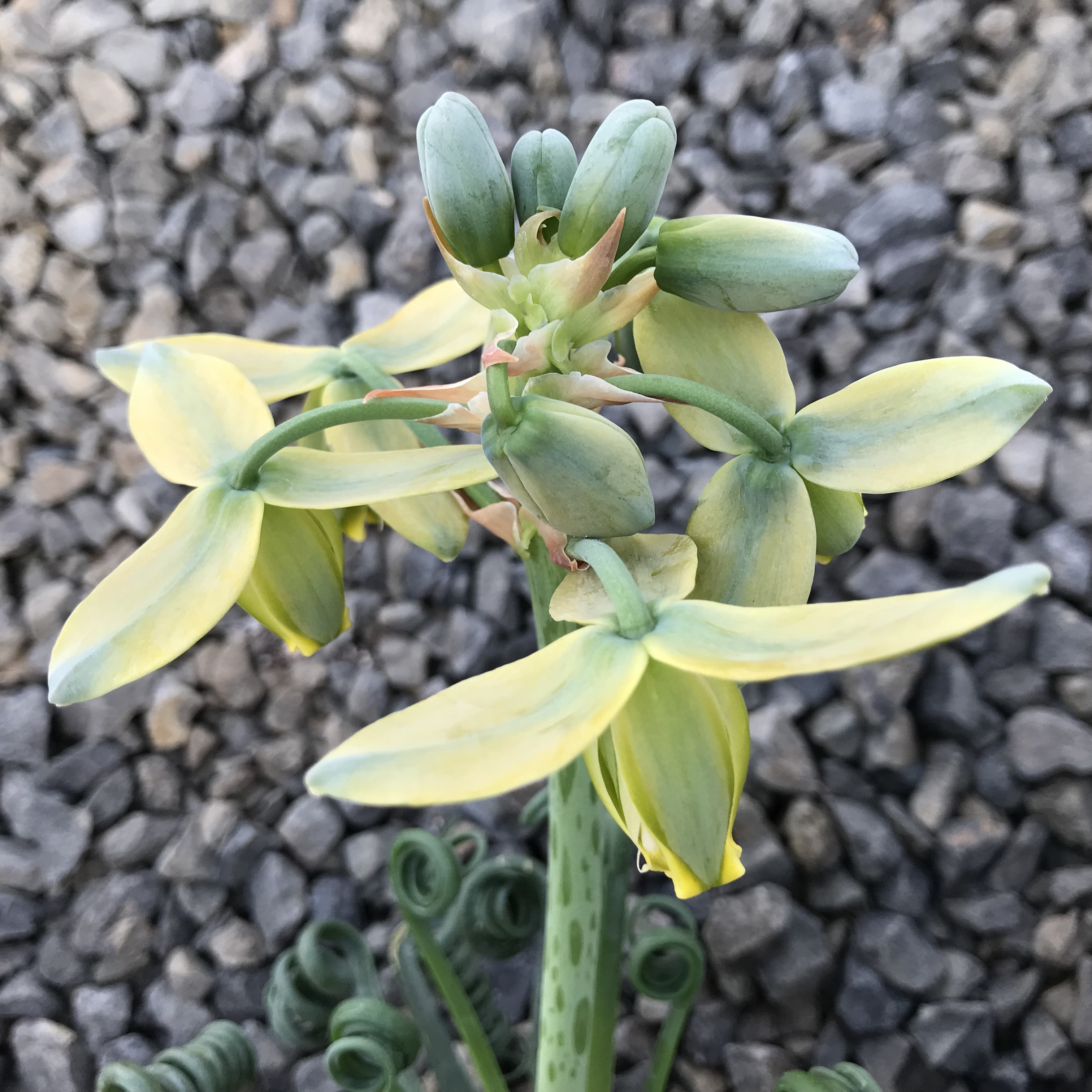
Albuca spiralis 'Frizzle Sizzle Corkscrew Albuca (4.5" Pot) Little
Albuca 'frizzle sizzle' is easy to care for when planted in the right location of the garden with good drainage. It needs average moisture and moderately fertile soil. Remove the spent foliage when it turns yellow and starts to wilt. Albuca is a cool-season plant, new plant growth isn't initiated till fall's cooling effects are felt.

Rare Frizzle Sizzle Plant Albuca STRANGE 2 Bulbs Etsy
Set the bulb halfway into a 'Cactus & Succulent' labelled potting mix and the appropriate-sized pot. The ideal location would provide bright, indirect light and temperatures around 15℃ (59℉) to ease it out of its resting period. Maintain relatively moist soil, allowing the top third to dry out in between hydrations.
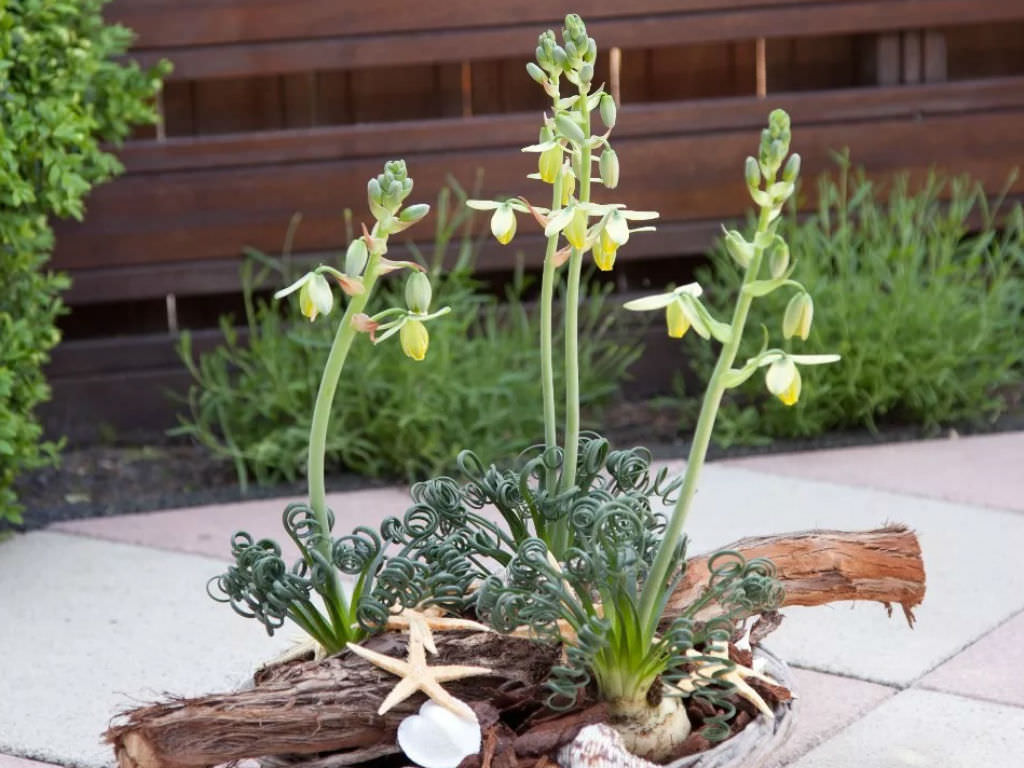
Albuca spiralis 'Frizzle Sizzle' World of Succulents
Frizzle Sizzle Care. These are the primary care requirements for growing frizzle sizzle: Plant in a loose, well-draining soil mix. Place in a location that receives bright, indirect light. Water lightly about once per week during the growing season, allowing the soil to dry out in between watering sessions. Feed about once per month during the.
I think my sizzle frizzle is starting to bloom! r/houseplants
This plant, which is native to South Africa, is known for its curly, twisted leaves that resemble a head of frizzy hair. The ideal temperature range for the Albuca Spiralis "Frizzle Sizzle" plant is between 60°F to 80°F (15°C to 27°C). This plant prefers warm temperatures and cannot tolerate extreme heat or cold.
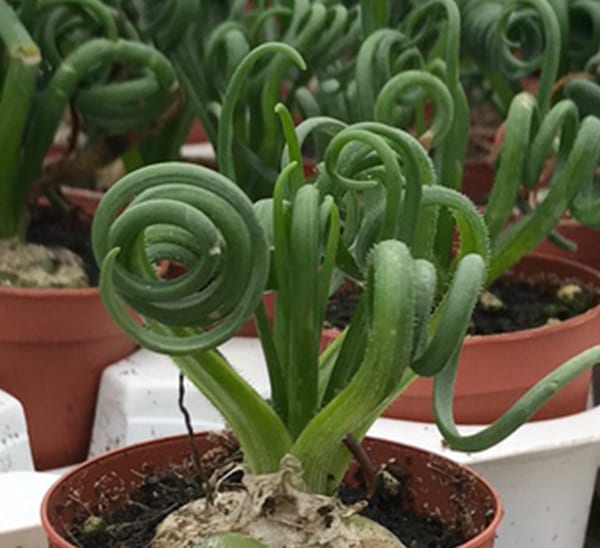
Albuca Frizzle Sizzle® Calloway's Nursery
A frizzle sizzle plant is a succulent bulb plant from South Africa. It is also known as the Albuca Spiralis, as it grows with spirals at the ends of its leaves. Interesting, right? This plant is green and typically extends to about 8 inches high, hence why it was mentioned to be quite interesting.
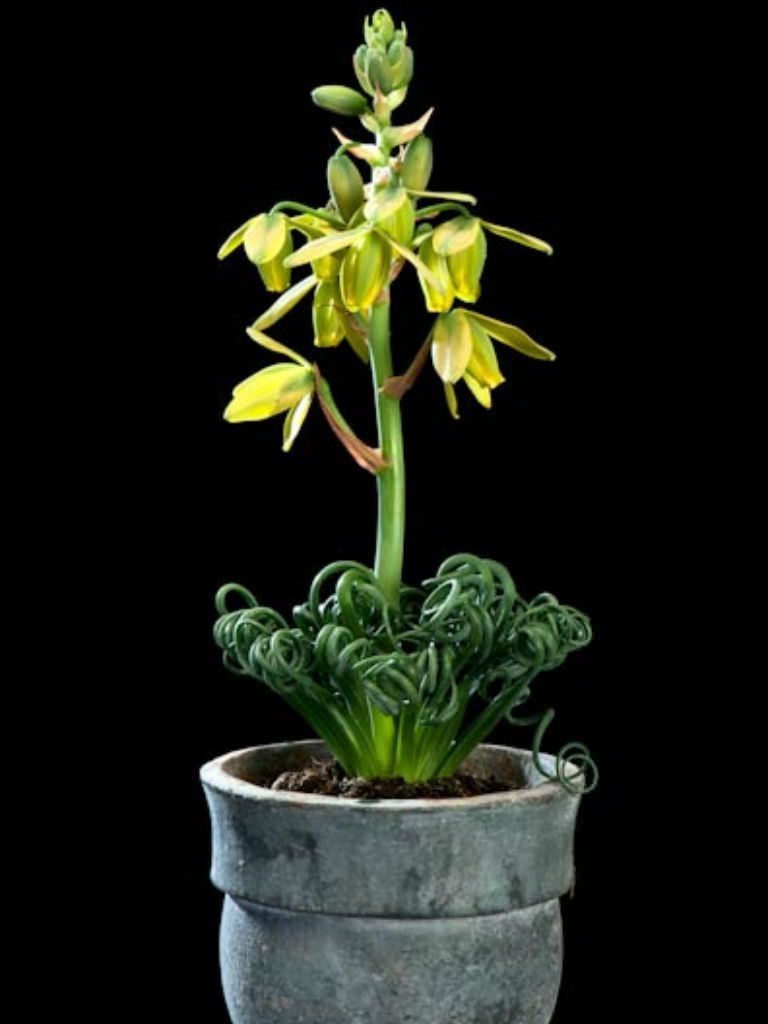
Albuca spiralis 'Frizzle Sizzle' World of Succulents
Frizzle Sizzle plants can be propagated by dividing the bulbs or by planting the seeds. Dividing the bulbs is the easiest method. Wait until the plant has finished blooming and has gone dormant. Carefully remove the bulbs from the soil and separate them. Replant each bulb in its pot, using fresh soil.

2 Albuca Frizzle Sizzle Live Plants Mini Succulents Etsy Plants
0.8 cups. every 12 days. Frizzle Sizzle needs 0.8 cups of water every 12 days when it doesn't get direct sunlight and is potted in a 5.0" pot. Use our water calculator to personalize watering recommendations to your environment or download Greg for more advanced recommendations for all of your plants. Water 0.8 cups every.
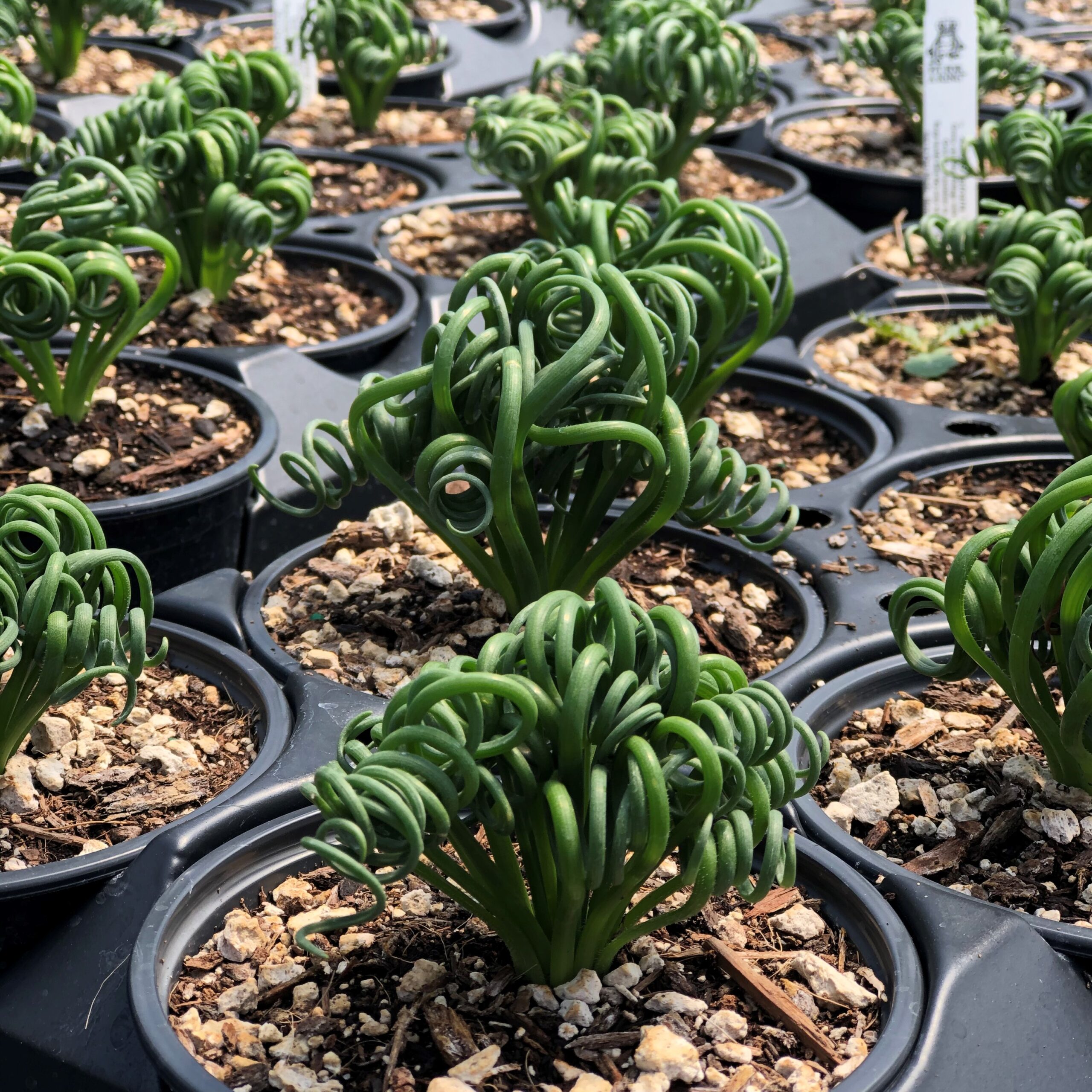
Albuca spiralis 'Frizzle Sizzle' Corkscrew Albuca (4.5" Pot) Little
Provide good drainage: Frizzle Sizzle plants prefer well-draining soil to prevent root rot. Give them plenty of sunlight: These plants do best in bright, indirect sunlight. Place them near a sunny window or outside in a shaded area. Keep them warm: Frizzle Sizzle plants prefer warm temperatures between 60 and 80 degrees Fahrenheit.
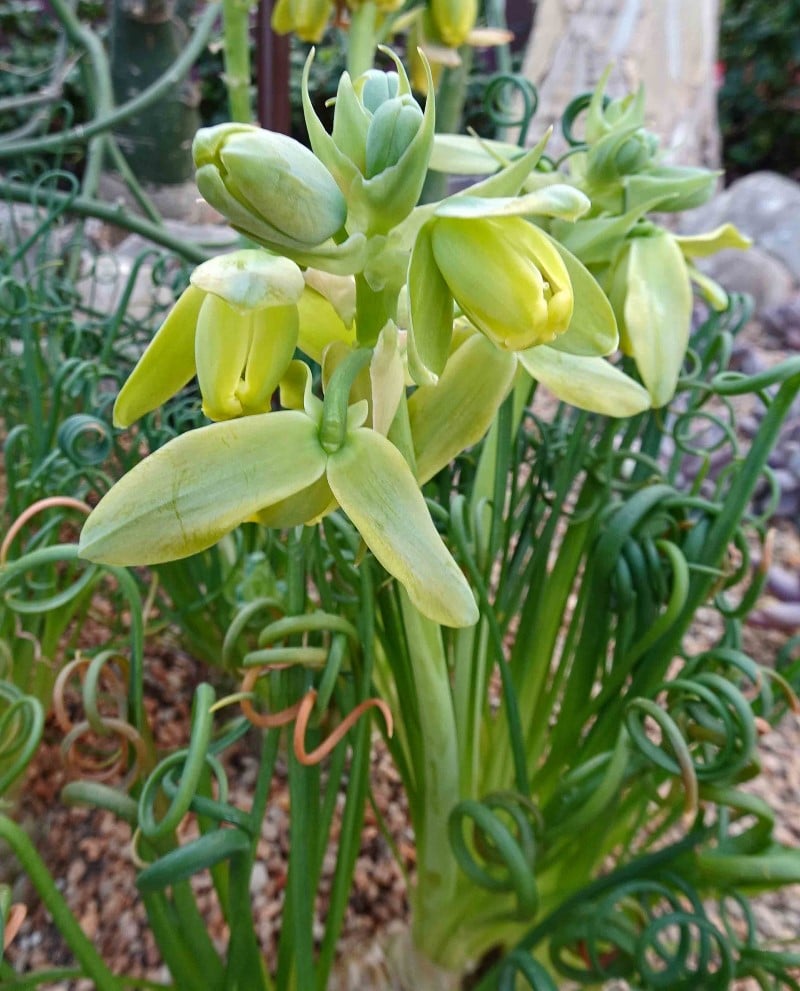
Albuca Spiralis (Frizzle Sizzle) Plant How to Grow and Care
4. Take a small pot and fill it with the prepared growing medium. Put your Frizzle Sizzle bulblet in the pot, making sure the upper ¾ of the bulb is above the soil surface . 5. Place the bulb in a spot where it can get a lot of bright indirect light. Irrigate the soil whenever you notice it's dry on the surface . 6.

Rare Frizzle Sizzle Plant Albuca STRANGE 3 Bulbs Succulent
An unusual plant, corkscrew albuca frizzle sizzle grows in winter and then becomes dormant during summer months. When it enters summer dormancy, some of the leaves can turn yellow and fall off (4). However, during its growing season, it surprises with delicate flowers, producing flowers on tall stems.
Frizzle Sizzle r/succulents
This is a natural occurrence. If you don't want this to happen, simply remove the flower stalks as soon as they start to grow to prevent leaf tip browning. Albuca 'Frizzle Sizzle' does best in full sun. You'll want to let the soil dry out between waterings. One of the best things about this distinctive and eye-catching plant is that.

EXOTIC Frizzle Sizzle Succulent Albuca Spiralis Plant Etsy
Frizzle Sizzle Care. Frizzle Sizzle, also known as Albuca spiralis, is a succulent and requires many of the same conditions that support plants like cacti and echeveria. It requires excellent drainage and high levels of light. In the right conditions, Frizzle Sizzle will reach 8-12". In low light conditions, the plants can grow long and floppy.
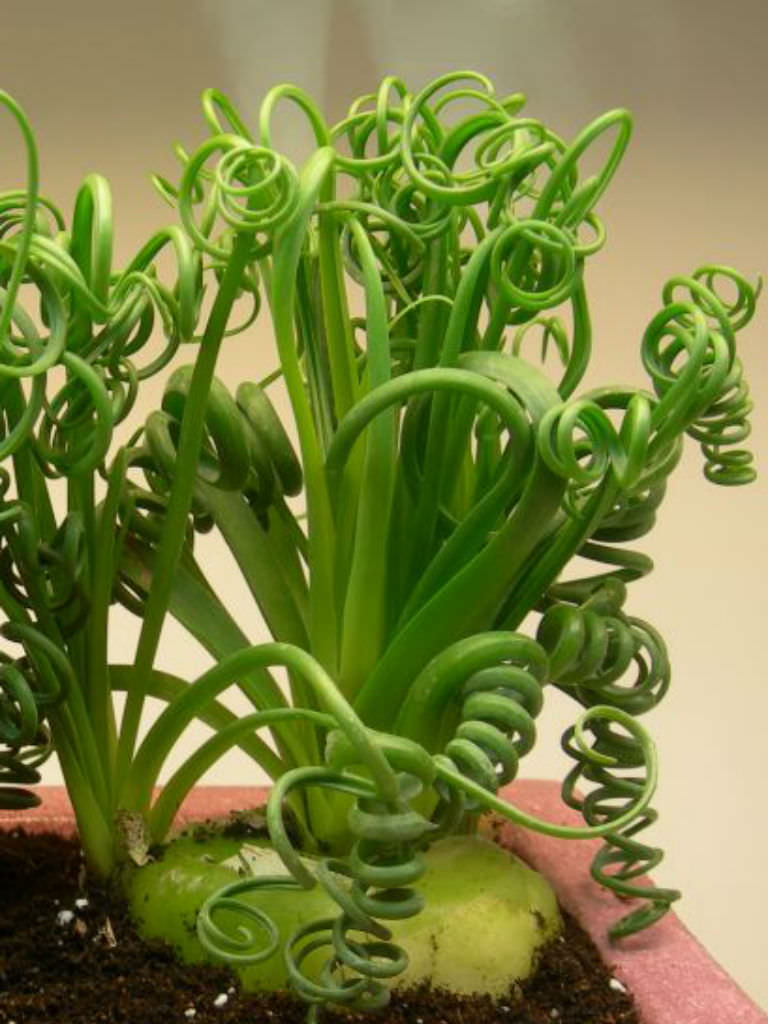
Albuca spiralis 'Frizzle Sizzle' World of Succulents
Starting a 'Frizzle Sizzle' from seed will, of course, require a longer wait for the payoff of the curly foliage, but the seeds do germinate easily. Here are the places we like to buy seeds online. Tips for Frizzle Sizzle Care. The ideal growing conditions for 'Frizzle Sizzle' are much like those of a succulent plant. The soil should.

Frizzle Sizzle Albuca Spiralis Rare Succulents For Sale Succulents
Albuca spiralis, commonly called the corkscrew albuca or frizzle sizzle, is a species of flowering plant in the family Asparagaceae, that is native to Western and Northern Cape Provinces, South Africa.. Description. The plant has narrow leaves that curve, forming a spiral. They are sometimes tipped with glandular hairs, but are not sticky (unlike those of the similar species, Albuca viscosa).